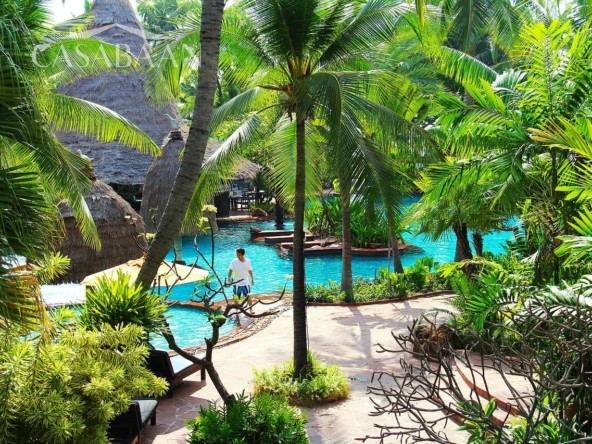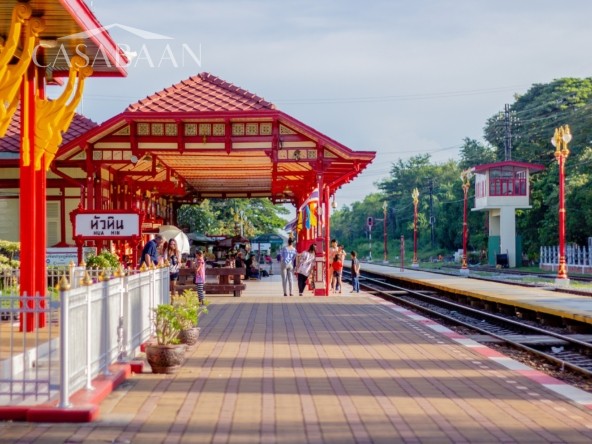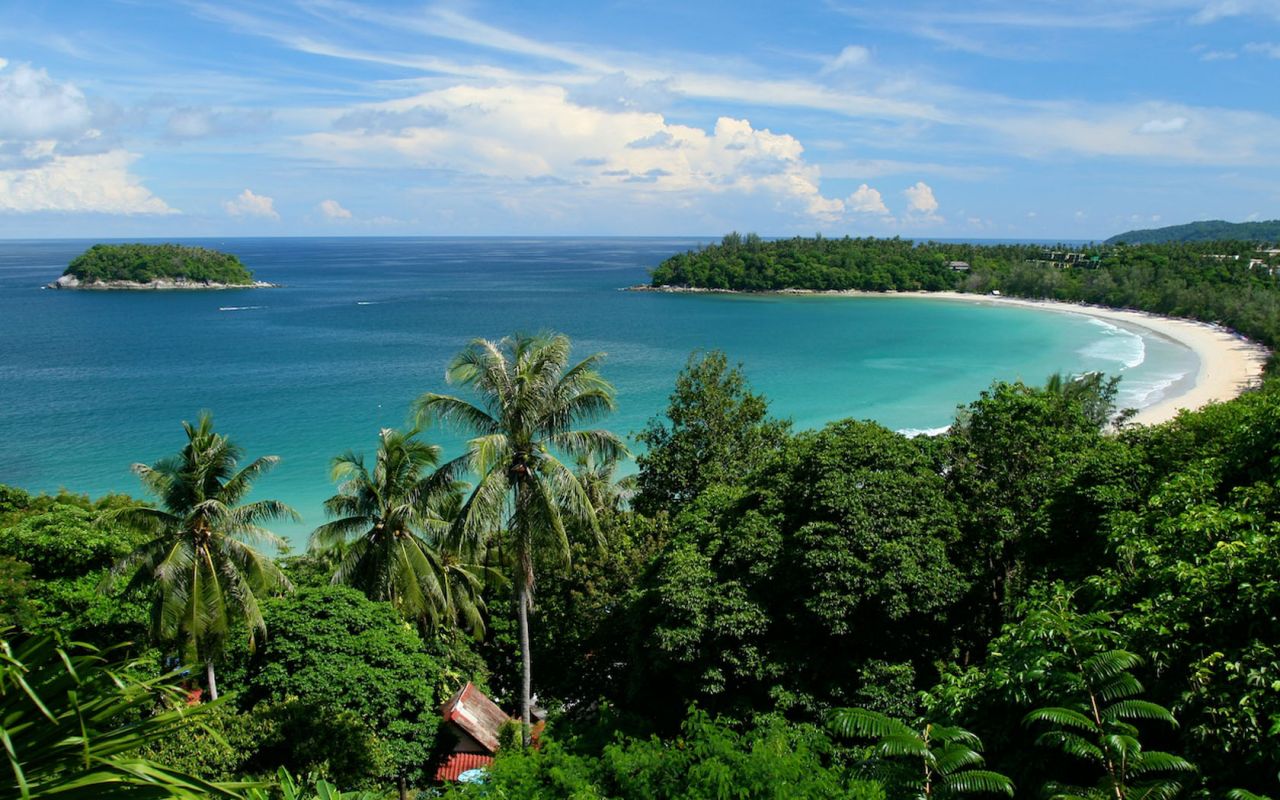Thinking of buying “off plans” in Thailand…? GOOD or BAD developer…
HOW CAN YOU TELL THE DIFFERENCE?
When looking to purchase a property in Thailand, it’s easy to get swept away by the sun, sea and carefree atmosphere that Thailand’s top destinations are famous for. This sometimes means that people who purchase second homes, holiday homes or a place for retirement houses in Thailand often forget to do the simple checks that are required when purchasing a property anywhere in the world. Simply put, the heart rules the head when pursuing a dream and mistakes are made when decisions are based on emotion and not logic. Forgetting to do Checks that come naturally when purchasing property in their home countries can be disastrous when buying overseas, as a foreigner and non-resident, your rights are limited so its important to get it right from the start… because for every good developer in Thailand, there is at least one bad.
There are many of both and it can be difficult to discern the good from the bad. If you are considering buying a property in Thailand off-plan (as many have done with great success) and gain access to some of the best-discounted properties… then this guide is for you! We will break down the checks that YOU should never neglect when considering a purchase of ANY property in Thailand.
Within this guide, you will find tried and tested techniques that when applied will help you find some of the more reliable developers in Thailand who WILL deliver your dream home without it becoming a nightmare.
- Do your research and know what you want.
- Speak with local experts.
- Check the developer’s background.
- Physically inspect the project itself.
- Does the developer owns the land?
- Speak with existing clients of the developer.
- What’s the payment plan?
- What happens after you have purchased?
- Who is going to manage your villa?
- What are the maintenance costs?
- What is a sinking fund?
- What lawyer will you use?
All of what you see above are basic checks that you should be aware of and carry out before the purchase. Let’s take a look at each point in more detail:
✓ Do your own research
It’s always best to visit anywhere before purchasing but as in most cases these days, the information found online can be priceless and a lot of your research can be done on the internet before inspecting properties physically. Thailand has many different towns and tourist hot spots. From secluded, tranquil seaside towns, major cities bustling with life to mountainous national parks, Thailand has something for everyone.
As in most cases, you would have probably visited on holiday frequently before deciding to buy in a particular location. Take a tour of the location and see what’s about, living and holidaying are two different things so work out what is good for you. Do you want to own closer to your favourite beach, or would you prefer to be closer to an airport or an international school? Understand your own objectives for owning a home in Thailand and ensure that they are majority met by the properties & the location you shortlist for inspection.
✓ Speak with local experts
With an understanding of your own objectives clear in your mind, now would be a good time to reach out to third parties who can help you to ensure you make a good decision. These third parties need not just be lawyers & real estate agents, speak to local businesses and other residents in the location you have chosen. Ask them about their experiences in the area, good and bad. Ask them if they are aware of any of the developers you have shortlisted. Most have a good grasp of the area and the local real estate market. They will tell you who the good and bad developers are.
✓ Check a developer’s background
Who you are going to give your money to? should be your main concern. Who are they? What have they done previously? How many units have they sold? How many projects have they completed? Speak with existing clients and get the opinion of your local experts. Seems obvious right?….. people do not do their research. If a developer claims to have sold multiple projects, logic says they should have multiple completed projects too, right? If not….. where has the money gone? Where is YOUR money going to go?? All these questions should be vital in YOUR research.
✓ Check the project itself
A 10 villa project that started 5 years ago, but still isn’t finished, means you have to ask yourself “How seriously does this developer market the project? How seriously does this developer care about my investment? How seriously does this developer care about my retirement plans?” A project that is 3 years old, has no show villa or any sign of major works done – should clearly be avoided at all costs. It sounds obvious, but people still rush in. Developments can run late, and that’s not always the developer’s fault. Weather and other factors that can be out of the developer’s control can lead to that. But common sense should prevail! People without construction knowledge should be able to work out a 10 villa project that should not take over 5 years to complete. Always ask about the start date and expected finish date of any project.
✓ Does the developer own the land?
In many instances, a developer does not actually own the land that they are developing. Yes – you read correctly. A lot of developers pay a small deposit and go into an agreement with the existing Landowner to build on their land. It saves the developer from having to buy it before bringing in money from villa sales. This keeps the developer’s cash in their pockets – whilst putting yours at risk. There will likely be a 1 or 2-year agreement with the landowner, where the developer has 1 or 2 years to pay for the remaining balance of the land in full. That’s all well and good….. providing they sell and complete on time! But what happens if the developer cannot pay on time? Your house, which may be only 50% built, is now sitting on land that the developer has no control over. There is a 3rd party Landowner who now has the ability to keep the land your unfinished house is sitting on. What are the chances that it is going to cost YOU a lot of money to resolve or be a complete loss? Some developers will ask for a very large deposit and claim they will transfer the land into your name before construction starts. Speak to existing clients and check that this is the case. Insist that deposit money and land are exchanged on the same day at the land office.
✓ Speak with existing clients of the developer
This fundamental rule cannot be repeated enough. Things don’t always run smoothly for the best of developers. Client relations can sometimes become a bit strained… but ultimately, people need to get what they have paid for, and in a reasonable time. Ask to see the client’s blue house book. This ensures you are not speaking with the developer’s “friends” but speaking with actual existing clients. Meet them in person whenever possible.
✓ What’s the payment plan?
Never pay too much money upfront to a developer. Make the developer take their profit at the end of the build. Paying too much upfront – means the developer has their profit and you will lose their focus. You will go to the back of the line with a bad developer. Part of being a good developer is having a sensible payment plan in place, generally split over 4 or 5 stages, over the course of around 12 months. Giving the client that comfort in seeing their money go to work in small stages.
✓ What happens after you have purchased?
When you are overseas and your property is finished, it cannot just sit there. It will need regular cleaning, access needs to be given for pool cleaners and pest control. Who is going to look after your villa when it’s complete? What provisions does the developer have in place? What are you going to have to do yourself? Who is going to manage your villa? In most cases – a management company will be set up to cover and manage basic requirements such as security, plant watering, pest control, accountancy and audits, including Issuing and logging of electricity and water bills. That is communal management. Sometimes pool cleaning will be included in this. This is what you need to check. Anything that does not come as standard – will still need doing by a private villa manager. If you rent your villa out, you will likely need a private villa manager. This has to be factored into any additional costs going forward. Check what is covered by the developer under the maintenance agreement.
✓ Is there a sinking fund?
Any sensible project should have in place a sinking fund. Each villa owner will make a small payment on the transfer of their villa – into the sinking fund. It’s a small fee that sits in a separate account, untouched, to cover any emergency repairs to the communal areas. Things like a transformer blowing, are essential to the running of the project and need to be fixed immediately. Sinking funds are rarely used but are important to have in place to cover such emergencies. One in place shows the developer has an eye for the future.
✓ What lawyer will you use?
Once you’ve finally decided which property is for you, more official checks will be required. Here’s where you will need a good local lawyer who can check the agreements between the developer and you, check permits and title deeds and even do a background check on the development company. Always use an independent lawyer. Do not use a lawyer the developer tells you to use. They could be paid by the developer to ensure any failures in due diligence go unnoticed. Shop around, speak with local experts, do the usual checks!
Follow these guidelines and you will work out for yourself – who the good developers are, and more importantly, who the bad ones are.
Make sure that every box above is ticked when researching any developer.
If you are looking for more information or need advice CONTACT US




